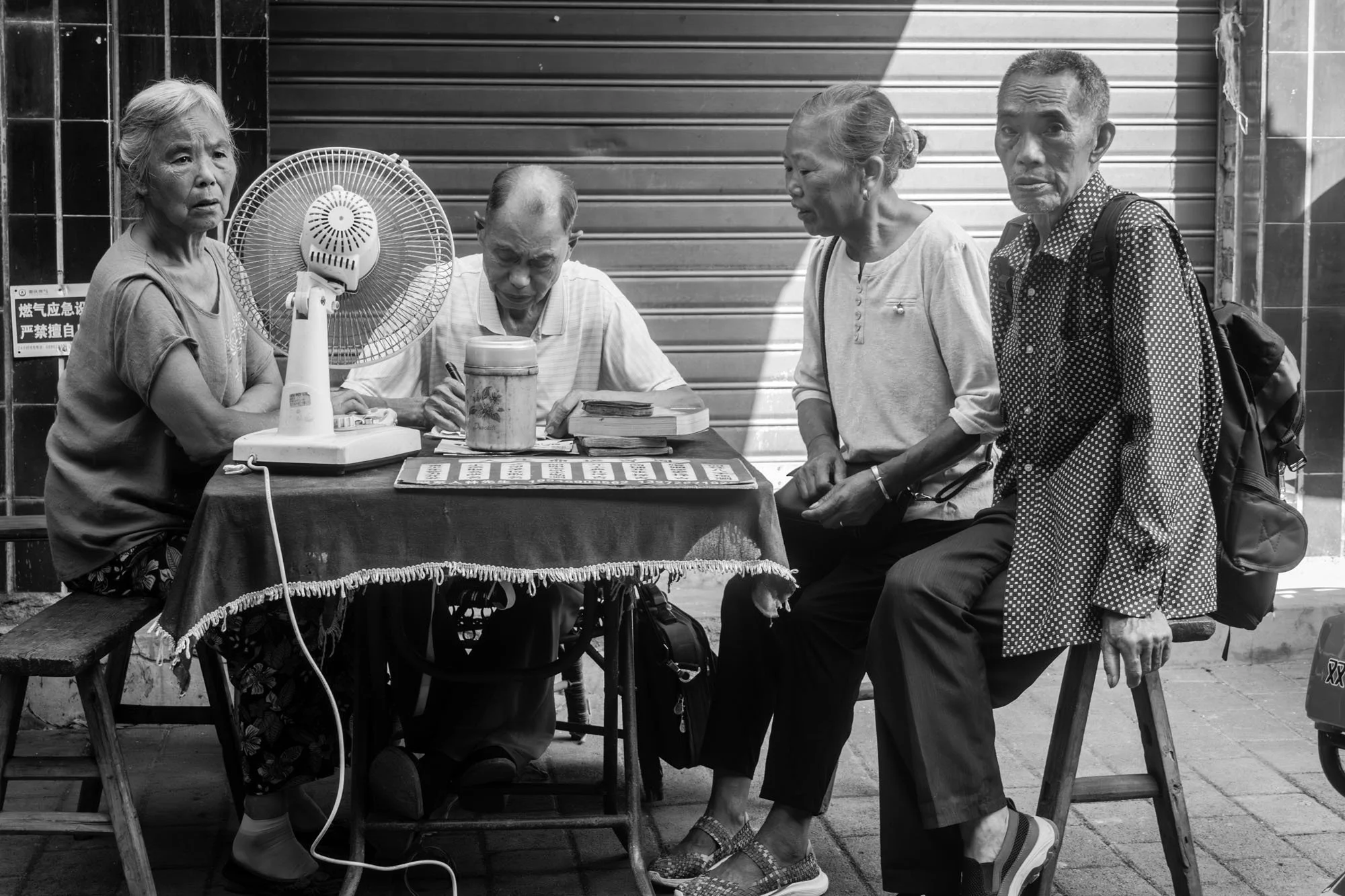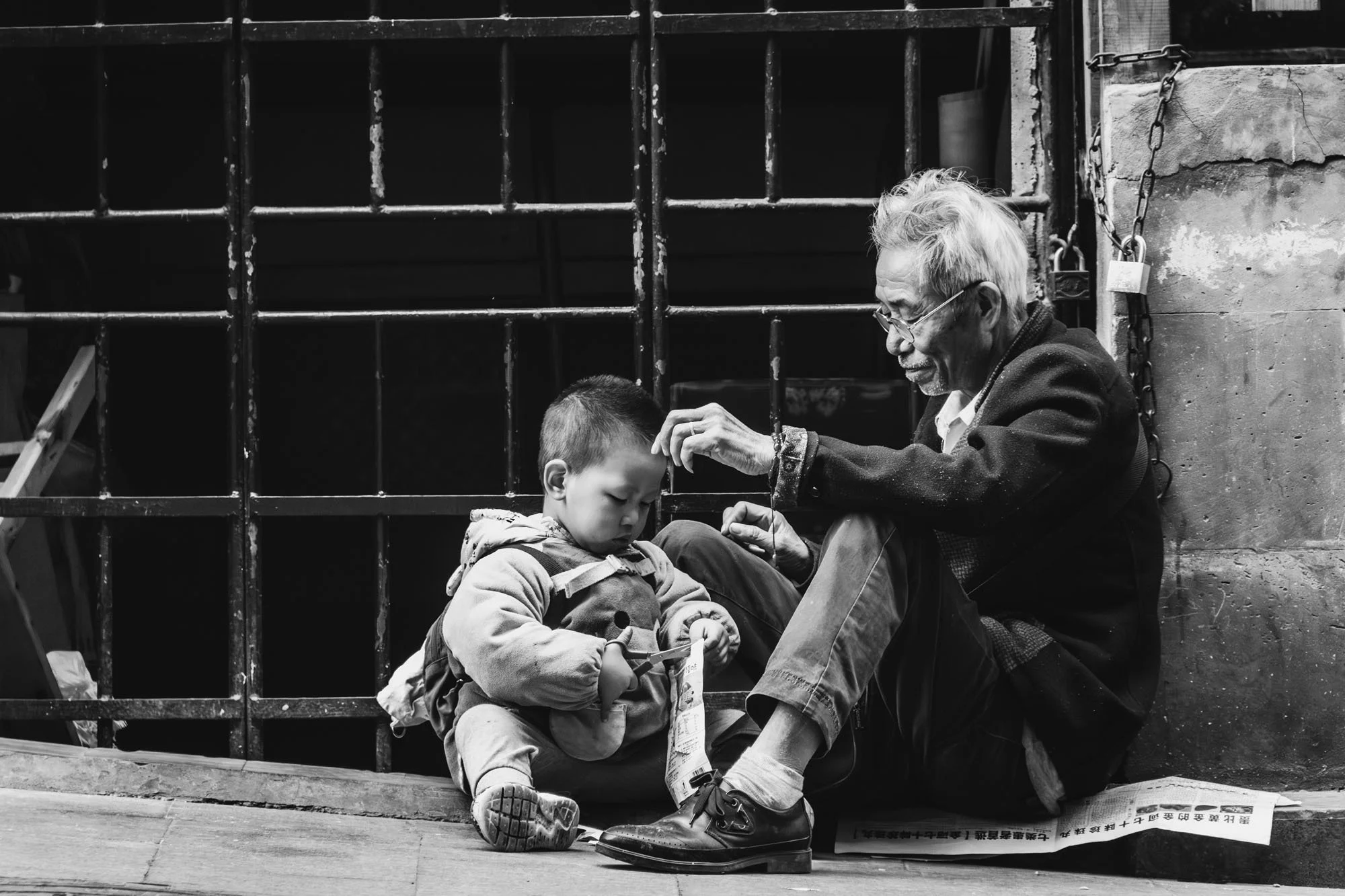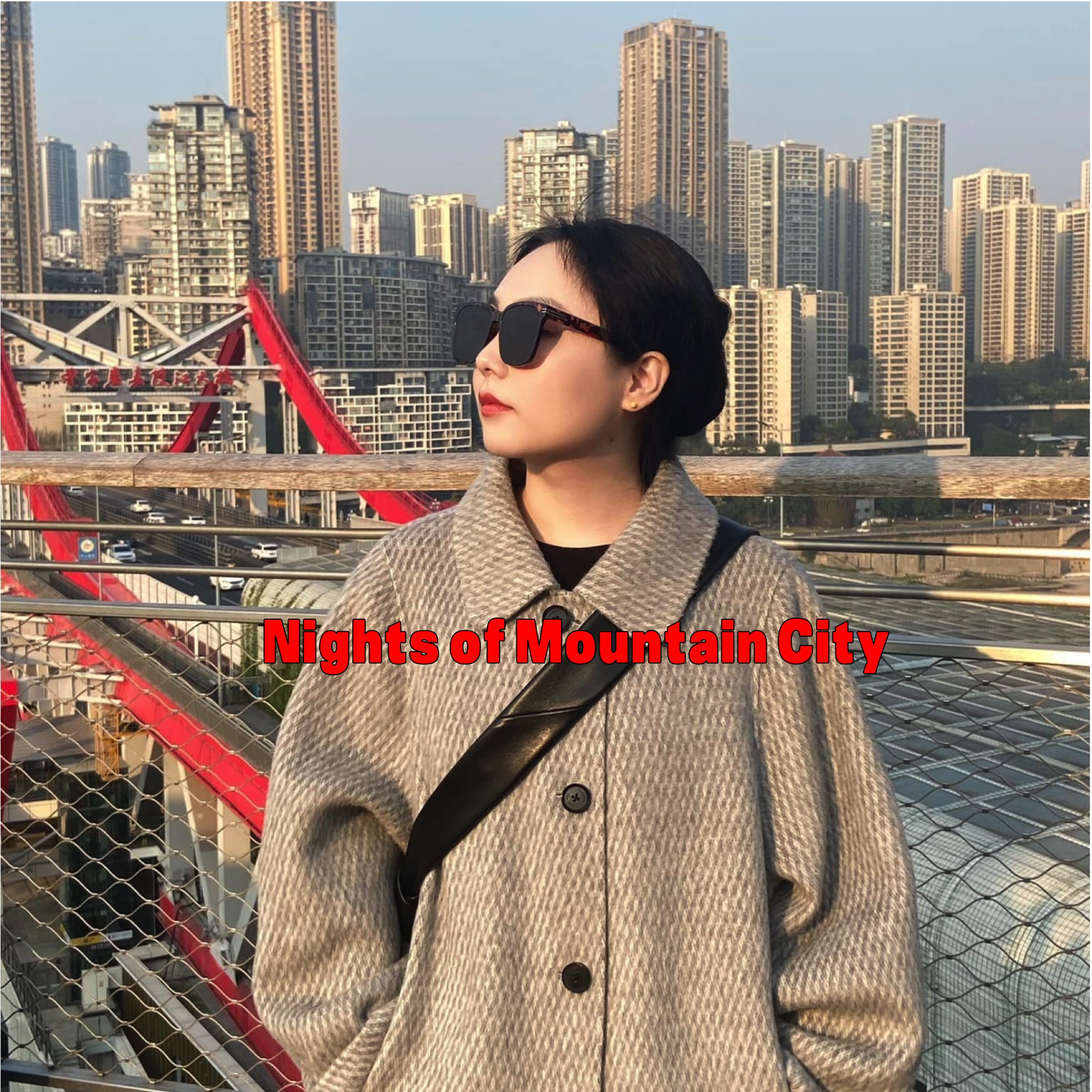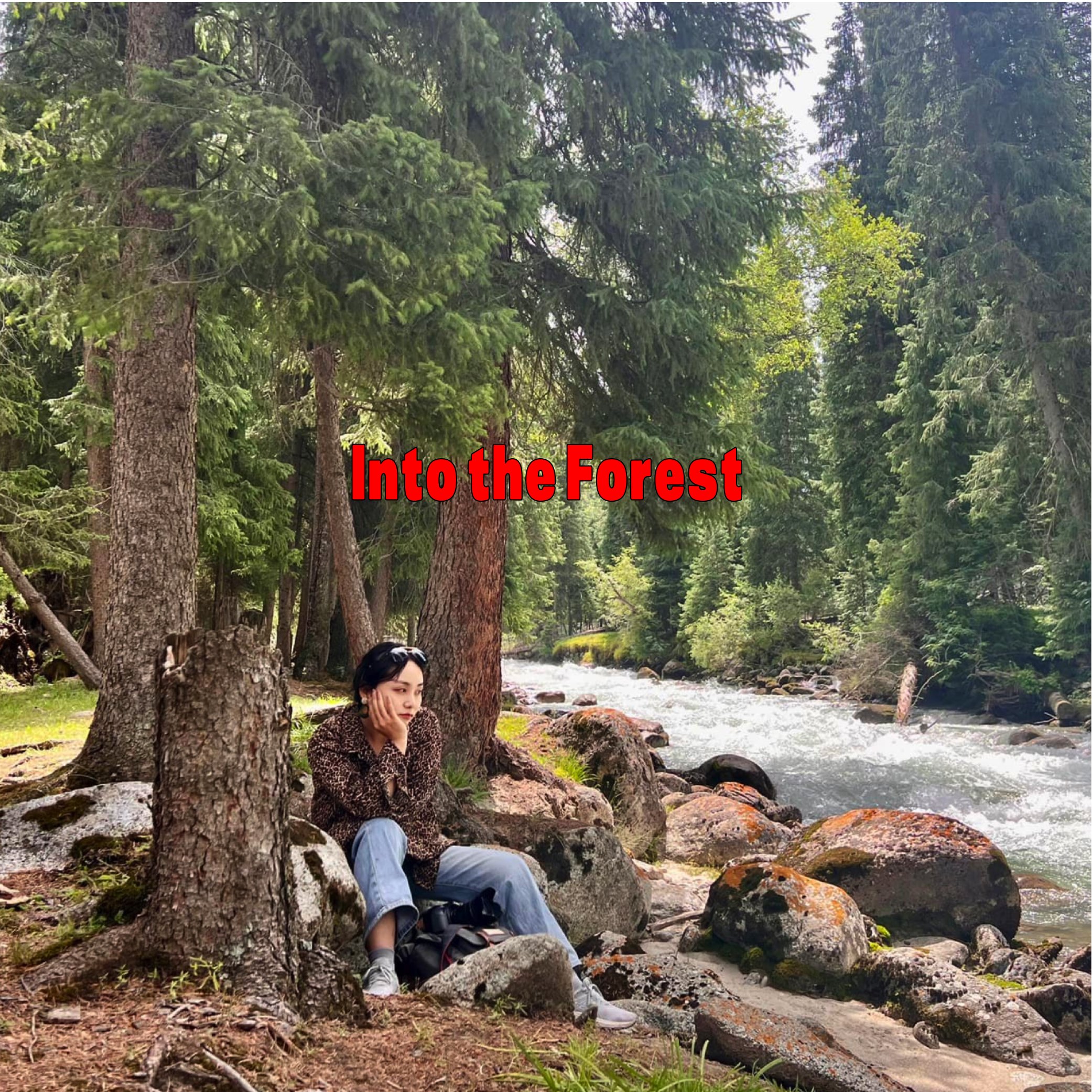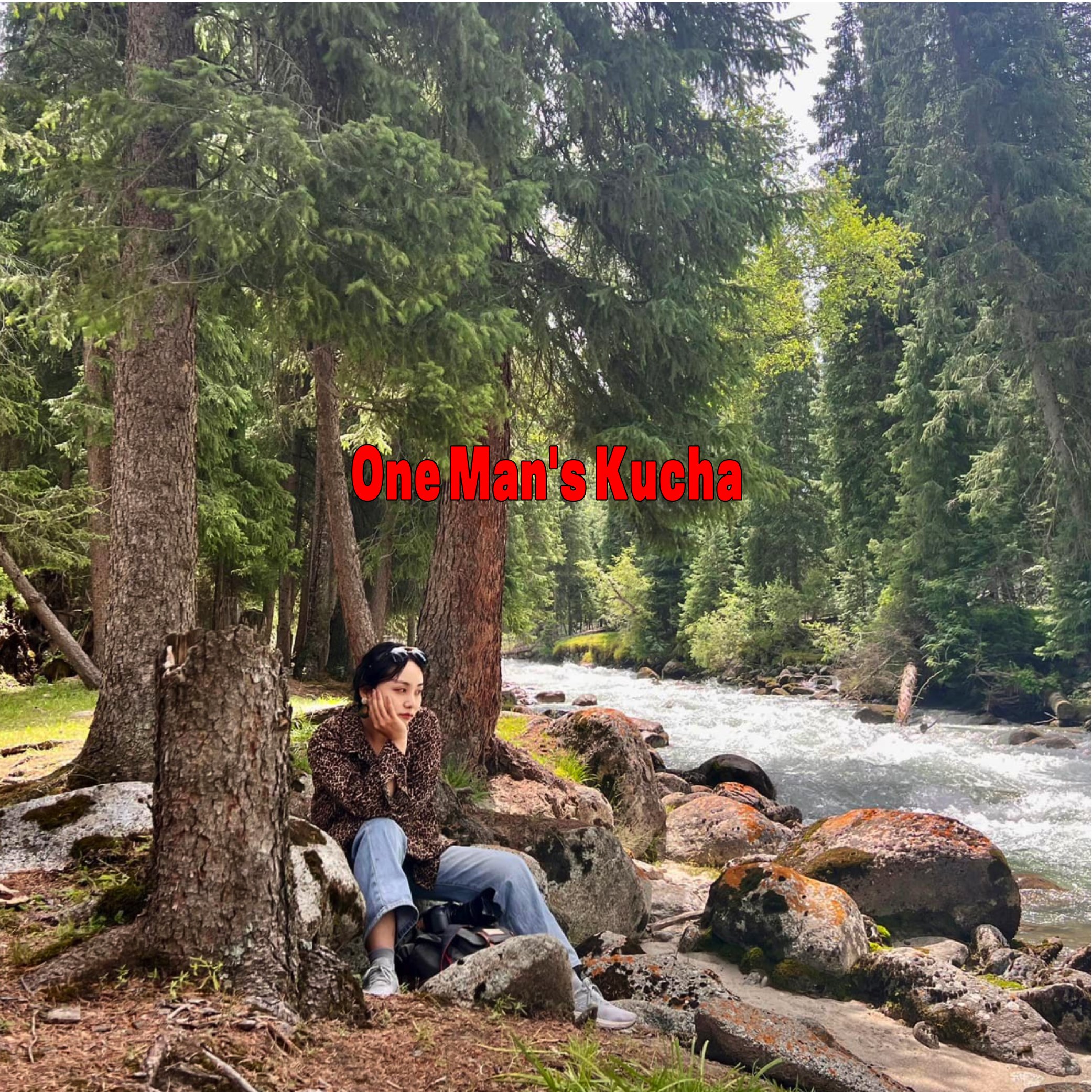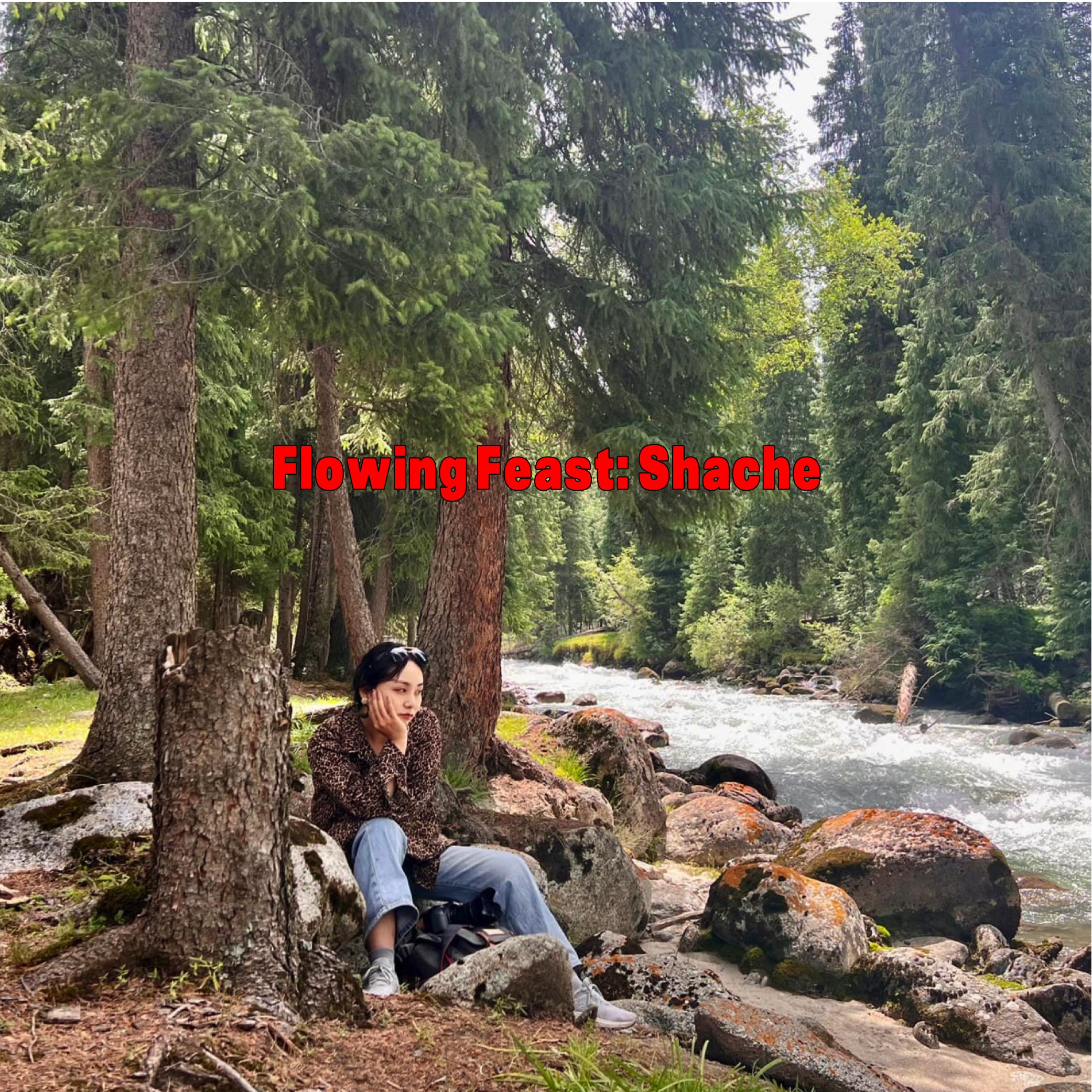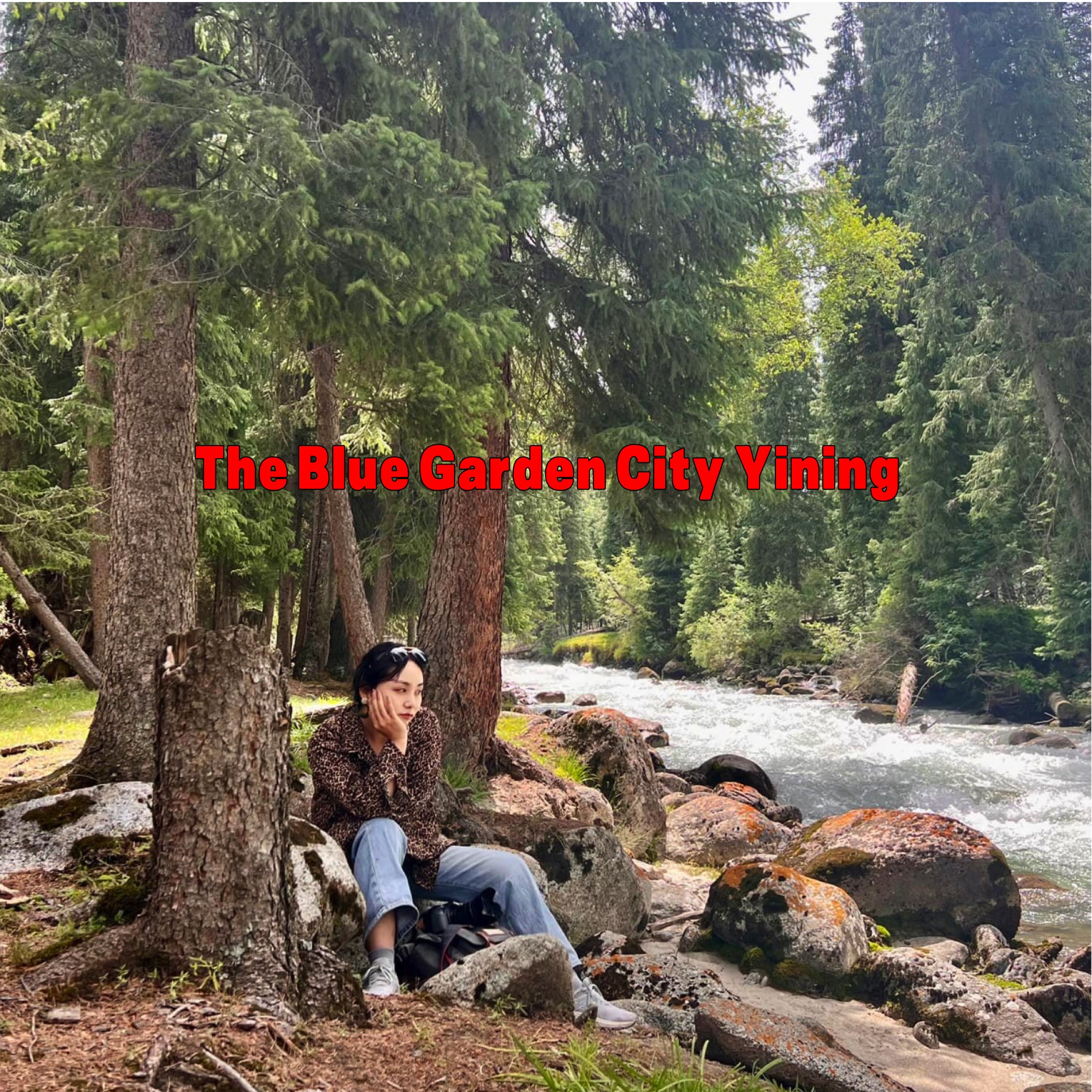My City: A Chongqing Story
Let's Go to the Market
The old street comes alive at first light.
"Let's go to the market!" neighbours call to one another. In Chongqing, market days move to a timeless rhythm. Hongtudi's old street springs to life every Sunday, Changshengqiao thrives on dates ending in two, five, or eight, while Wangjiabao swears by three, six, or nine. "Three, six, nine—time to go!" chant the folks of Jingguan Town in Beibei, while in Fuxing Street they sing, "Two, five, eight, load your baskets with ducks!" These traditions, handed down through generations, are woven into the fabric of local life.
The old street coils like a worn hemp rope, twisting its way into the market's heart. Generations of footsteps have burnished the bluestone flagstones to a liquid gleam, their hollows cupping last night's rainwater. The crowd flows thick as congee, every step a small conquest. Yet no one complains—why hurry and miss some tucked-away treasure? Further in, the press of bodies tightens, bearing out the local wisdom: "The real finds hide where the crowd is thickest."
"Gangway! Gangway!" Stoop-shouldered farmers balance carrying-poles, their swinging baskets—brimming with dawn-fresh harvest—arc like metronomes at each tip. Sweat stains map salt lines down their collarless shirts. These are men who rose in the cricket-hour, picked down moonlit mountain trails, then wedged themselves into overloaded buses and subway carriages—all to barter a single basketload for a hundred yuan, not even enough for a single hotpot meal downtown.
"Hot stuff coming through!—Gangway!—"
Bent double under the summer sun, Auntie Douhua—the market's reigning tofu matriarch—hauls her flatbed trolley. Its hammered-steel basin cradles quivering slabs of bean curd, their pearlescent surfaces sheening with condensation. Steam geysers from the basin's rim, unfurling a phantom banner in her wake. The relentless sunlight strikes the metal surface, transmuting the vapours into swirling aureoles of gold.
The grannies sidestep the cart, their eyes locked on the quivering tofu. One smacks her lips: "So fresh it'd weep if you breathed on it!"
Suddenly, the market erupts.
"Fresh-picked ferns, tender as spring!"
"Free-range chickens, just butchered!"
"Scissors sharpened, knives honed!"
Soundwaves collide in the dawn light—the whisper of wicker baskets scraping bluestone, the metallic chime of iron weights hitting scale pans, and some unseen child's tantrum for sesame candy—all steeped in the malty fragrance of youcha simmering at perfect thickness, its paste of rice porridge and roasted flour swirling with the crisp aroma of fried dough twists, expanding through the morning mist in voluptuous clouds.
Each season paints the market in its own colours.
Spring bursts with vibrancy. Fragrant toon shoots, five yuan a bunch. Mud-caked fish mint, dewy water celery, all neatly arranged. An old woman slaps dough into emerald-green cakes. "Try one?" she beams. Bamboo shoots from the southern hills are so tender they seem to weep. An old man squats beside trays of seedlings—peppers, tomatoes—selling them by the clump.
Summer gleams gold with loquats. A vendor hawks "the best chives for dumplings." Water spinach is tied in bundles, bitter gourds crowned with yellow blossoms, tomatoes glowing like rubies. Watermelons are stacked into hills, their flesh sugary-sweet at two yuan per half-kilogram. Pineapples go for ten yuan a pair, the vendor’s knife flashing as he peels them under the sun.
Autumn brims with earthy richness. New rice, still warm from the sun, fills burlap sacks. Peppers are sorted by purpose: erjingtiao for pickling, chaotian for drying, and lantern peppers for chilli paste. Pine mushrooms dangle from straw strings like tiny bells. A woman selling fermented glutinous rice boasts, "Freshly brewed—sweet as honey."
Winter crackles with life. Frost clings to ercai; mud still coats the radishes. A freshly slaughtered hog lies on a block, its fat three fingers thick. Spice stalls overflow with star anise, peppercorns, and chilli, the proprietress's hands dusted with seasoning. Cypress branches are bundled for smoking bacon. A wok clangs as sunflower seeds roast, and tangerines glow like New Year's lanterns.
But the most curious sight lies tucked away in an air-raid shelter.
Farmers with shiny new permits stand in rows, their baskets overflowing with fresh greens. A silver-haired woman tends to her bamboo shoots, each one meticulously peeled." Fresh ones for 1.5 yuan, parboiled for 3.5," she says, nodding toward the hills behind her home.
When she learns it's my first time cooking bamboo shoots, her eyes light up." Slice them thin," she instructs," boil for fifteen minutes, and change the soaking water often—gets rid of the bitterness." Her calloused hands scrape against the shoots as she demonstrates, the sound like dry leaves rustling. "Then fry them in lard with garlic and chilli—add salt last. And if you're cooking with bacon, always use the parboiled ones. Worth every extra penny."
Stepping out of the cool shelter, the market's true spectacle unfolds—the meat stalls, glossy and gleaming.
Freshly butchered pork hangs from hooks, skin glistening. A butcher, cigarette dangling from his lips, hones his cleaver before slicing a perfect strip of belly. A wild boar's head lolls on the ground, tusks flecked with grass, its cloudy eyes reflecting shuffling feet.
An ox's tail, its tip grey with dust, drags underfoot. Eels writhe in a tub like tangled shoelaces. An old man drains a chicken's blood, muttering, "Fresh, tender." Lobsters grow cheaper the deeper you go—18 yuan outside, 16 within, their claws snapping as if protesting the price gap.
At the Market, a middle-aged woman meanders through the market, pushing a cart and pausing every few steps. By chance, she runs into a familiar farmer—a regular vendor whose produce she's bought for years. They stop to chat by the stall, and she casually inquires, "Got any home-raised chickens or ducks left? Or maybe some fresh eggs?"
But her eyes keep darting back to the vegetable display. The dewy greens, the plump eggplants—each seems to whisper for her attention. "This one's nice... that one too," she murmurs, feet rooted to the spot. Her cart already overflows like a miniature harvest mound, yet she keeps stuffing in more, unable to resist.
Deeper in, the stalls grow eclectic. A pickle seller guards a dozen jars of "family-recipe" ferments. Nearby, a bamboo weaver's fingers fly, crafting a winnowing basket in minutes. The pet stalls draw smiles—dogs, rabbits, hamsters, all negotiable. A man extols his tabby's mousing skills, though the cat dozes indifferently in the sun.
Oddities abound. An herbalist peddles gnarled roots for "incurable ills." A grizzled man clutches moss, touting it as "century-old stone ear" for coughs. Fortune-tellers draw crowds—a bespectacled man flips a well-thumbed book, telling a young woman in a thin-strap dress, "Marriage late, career..." A female mystic traces cryptic symbols in the air with incense, her clients chatting on stools.
In the shadows, hair buyers perch on stools, eyes sharp for long tresses. A mother haggles over her daughter's waist-length hair. "Don't cut it too short," she pleads. The buyer inspects the strands like a pawnbroker appraising jade, then smiles: "Split ends—lower price."
"Haircuts! Five yuan!" Elderly men queue up, then linger at tea stalls, playing cards in straw hats and sweat-stained shirts—the market’s unofficial uniform.
"The gap between city and country's still wide," muses a septuagenarian sipping tea. "Retired city folk dance in squares, living easy." At his feet rests a bamboo basket, tightly woven to hold fifty kilograms.
My fingers brush a bamboo mat, its crisp scent hurling me back to 1990s summers. At dawn, I'd hear my grandparents scrubbing mats in the yard, using grass blades to polish them bright. By five, Grandpa shouldered the stack, Grandma held my hand, and we trekked an hour to market. The mats towered above me, their silhouettes vast in the mist.
They sold out fast. If goods lingered past noon, farmers had to peddle door-to-door. Unsold items were hauled home. "Study hard," Grandpa often said, eyes glinting. "Never be a farmer. Too hard."
"Markets aren't what they were," sighs an old man leaning on a faded pillar, pipe smoke curling. The rooftops sag, weeds sprouting from their tiles. Faded pink lanterns sway near a freshly painted "Rural Revitalisation" slogan.
He taps out his ash, grinning. "Back then, you couldn't find footing in this crowd." A gust sends plastic wrappers skittering. Down the street, youths stride past, earbuds in, oblivious.
Once, market day was sacred. Farmers shouldered baskets of dew-kissed greens, live poultry fluttering. Butchers' cries carried for miles. Kids clustered around sugar-painting stalls, marvelling as long took shape with a flick of the artist's wrist.
Now, supermarkets reign. Produce wrapped in plastic, apps delivering groceries with a beep. Old farmers sell via TikTok or let fields lie fallow. Market days dwindle, attended mainly by silver-haired vendors sighing over children working faraway jobs.
The decline feels like old door couplets peeling away—new layers never quite hiding the past. A scan's "ding" is convenient, but it lacks the clatter of a scale's counterweight.
"Don’t hold me, I can walk," an old woman chides, though her eyes crinkle. Her son clutches her hand. "Ma! I’m your boy!" They inch up worn stone steps, her cloth shoes scuffed smooth. She returns empty-handed—she came only for the bustle. His grip is firm, like the child who once feared losing her in the crowd.
As the sun climbs, farmers hoist empty baskets home. Their backs bow like old boughs, yet their eyes sparkle as they count wrinkled bills. The poles bend their spines but not their spirit. Their steps are lighter now—lunch awaits.
Tomorrow's Gregorian date ends with a nine—the Banan Jieshi market stirs anew. But how many generations will still feel its pulse?













